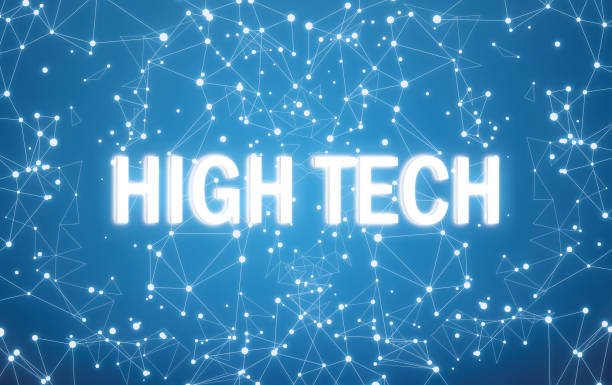What is digital ethics and its basic details Why are digital ethics important...
Digital ethics is a field that addresses the ethical challenges and considerations arising from the widespread use of technology particularly in the digital sphere. It consists of a set of principles, guidelines and values that govern the responsible use of technology data and digital resources. In an era dominated by rapid technological advancements digital ethics plays a vital role in shaping the way individuals, organisations and societies interact with and harness the power of digital technologies.
What is digital ethics and its basic details Why are digital ethics important …?
Digital ethics navigating the ethical landscape of the digital age
Digital ethics is a field that addresses the ethical challenges and considerations arising from the widespread use of technology particularly in the digital sphere. It consists of a set of principles, guidelines and values that govern the responsible use of technology data and digital resources. In an era dominated by rapid technological advancements digital ethics plays a vital role in shaping the way individuals, organisations and societies interact with and harness the power of digital technologies.
1. Basic overview of digital ethics
Definition
Digital ethics also known as cyber ethics or Internet ethics refers to the study of ethical issues and challenges arising from the use of digital technologies. It covers a wide range of topics including privacy data security, cybersecurity artificial intelligence (AI) algorithmic decision making and the broader societal impact of technology.
Interrelationship of Ethics and Technology
Digital ethics sits at the intersection of ethics and technology addressing the ethical implications and considerations brought about by the increasing integration of digital technologies into various aspects of our lives. It seeks to provide ethical guidance in the development, deployment and use of technology.
Multidisciplinary Nature
Digital ethics draws from a variety of disciplines including philosophy, computer science, law , sociology and policy studies. Its multidisciplinary nature reflects the complexity of ethical considerations in the digital age requiring insights from different fields to develop a comprehensive ethical framework.
2. Importance of Digital Ethics
Protection of individual rights Digital ethics is important to protect fundamental rights such as privacy, freedom of expression and autonomy in the digital sphere. As technology evolves ethical considerations become paramount in ensuring that individuals are protected from inappropriate surveillance data misuse and violations of their digital rights.
Reliance on Technology
Trust is the cornerstone of the digital ecosystem. Digital ethics promote trust by promoting transparent and responsible practices in the development and deployment of technology. When individuals and organizations are confident that technology is used ethically they are more likely to adopt and adopt digital innovations.
Mitigation of prejudice and discrimination
Ethical considerations are essential in the development of algorithms and AI systems to minimise biases and discriminatory outcomes. Digital ethics emphasise fairness, accountability and transparency in algorithmic decision making thereby reducing the risk of reinforcing social biases.
Protection of social values
As technology becomes deeply embedded in society digital ethics helps preserve and uphold social values. It ensures that technology is consistent with ethical norms, cultural values and social expectations thereby preventing the erosion of essential values in the face of technological progress.
Global Collaboration and Standards
Digital ethics encourages global collaboration and the establishment of ethical standards. In a connected world where digital technologies transcend borders, shared ethical principles guide the responsible use of technology on a global scale. Collaborative efforts contribute to a more consistent and universally accepted ethical framework.
long term stability
Ethical considerations extend to the long term sustainability of the technology. Digital ethics promote environmentally sustainable practices, responsible resource use and the ethical implications of emerging technologies to ensure that technological advancements contribute positively to the wellbeing of both present and future generations.
3. Focus areas of digital ethic Privacy and Data Security
A central focus of digital ethics is privacy and data security. It addresses responsible management of personal information, informed consent, data ownership and measures to protect individuals from inappropriate surveillance and data breaches.
Cyber security
Cybersecurity is an important aspect of digital ethics which emphasises the importance of securing digital infrastructure networks and data against cyber threats. Ethical considerations in cybersecurity include balancing security measures with respect for individual privacy and avoiding disproportionate surveillance.
Algorithmic Decision Making
As algorithms and AI systems influence decision making in various domains, digital ethics examines the ethical implications of these technologies. It focuses on preventing bias, promoting fairness, ensuring transparency and establishing accountability in algorithmic decision making processes.
Digital inclusion and access
Digital ethics recognizes the importance of ensuring that digital technologies are accessible to all regardless of socioeconomic status abilities or geographical location. It advocates digital inclusion bridging the digital divide and creating technology that accommodates diverse user needs.
Ethics in AI and Autonomous It addresses issues such as accountability, transparency, fairness and the ethical implications of entrusting decision making to intelligent machines.
social media and online behaviour
Ethical use of social media and online platforms is a major focus area. Digital ethics examines issues related to online harassment, misinformation , the impact of social media on mental health and the responsible design of platforms to encourage positive online behaviour.
Digital rights and freedom of expression
Digital ethics advocates the protection of digital rights including the right to freedom of expression online activism and access to information. It examines the balance between security measures and the preservation of the democratic principles underpinning digital freedom.
emerging technologies
As new technologies such as quantum computing blockchain and the Internet of Things (IoT) emerge digital ethics adapts to address the ethical challenges associated with these innovations. It estimates potential risks and guides the ethical development and deployment of emerging .
4.Challenges and future direction
Rapid technological progress The pace of technological progress is a challenge for digital architecture.
What's Your Reaction?




















